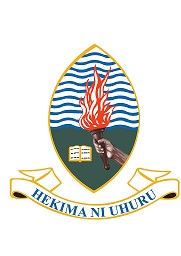Project team:
- PI: Professor Mark Horton, Royal Agricultural University
- Co-I: Dr Annalisa Christie, Royal Agricultural University
- Co-I: Dr Elgidius Ichumbaki, University of Dar es Salaam
- Abdallah Khamis Ali (ZAHEFO)
- Neema Athuman
- Mashauri Lumbas Mbolea
- Kidu Ali Hamad, Ministry of Tourism and Heritage, Zanzibar
- Steven Didas Mfupe, University of Dar es Salaam
Funding source: British Academy’s ODA Climate Change Challenge Grant IOCRG\101531
Project summary
Funded by the British Academy’s ODA Climate Change Challenge Grant, the ‘Giving us Voice’ project led by Prof. Mark Horton and Dr Annalisa Christie (RAU) in collaboration with Dr Elgidius Ichumbaki, University of Dar es Salaam sets out to understand how artisanal fishers in Pemba, Unguja and Mafia, Tanzania are affected by and are adapting to the effects of climate change.
Fishing and its associated activities represent one of the most important economic sub sectors in Tanzania - contributing between 1.6% and 1.8% GDP, directly employing around 200,000, while the wider fisheries industries contribute $45m to the economy and employ around 4.7 million people. The majority of the fishers are small scale artisanal operators using traditional gears such as basket traps, fence traps, gill nets and hand-lines, fishing from traditional dhows and dug out outrigger canoes (ngalwa), propelled by sail and paddles. Their way of life is increasingly threatened by offshore international trawlers, a local shift towards non-traditional 'ring netting', and the creation of marine conservation zones. On top if this, comes climate change, with reef acidification coral bleaching, warming sea temperatures, rising sea levels and increased variability in wind.
These artisanal fishers exploit different marine ecological zones, from inshore rocky lagoons, mangrove swamps, to coral reefs, and some pelagic zones offshore; while reef fish are the main staple, other products include crabs, lobsters and octopuses for the hotel industry, and shell fish for local consumption. Traditional gender norms have resulted in many women and young people involved in processing and trading the catch, but they have also capitalised on the marine environment in other ways, through shell- and octopus fishing and seaweed farming -with the latter now employing over 25000 women.
Over the next 12 months, the project team will be working with coastal communities, NGOs, marine park officers and government officials across Pemba, Unguja and Mafia, using interviews and workshops to record their experiences of climate change effects and to explore whether or how artisanal fisher are adapting their practices in the face of these challenges. We will use a combination of interviews and workshops to collate their experiences, drawing on cultural and creative industries to develop digital outputs that will shine a light on their experiences and share their voices on a global stage.
The data collected will be used to determine whether or how the different economic systems, management and governance structures of these islands are affecting the resilience of artisanal fishers. Our work will be used to inform fisheries policy in Zanzibar and Tanzania, with the diversity of perspectives collated, allowing for greater nuance in policy recommendations.
Data collected from across the three islands will be used. To achieve this, they will use interviews, workshops and storytelling, working with artisanal fishers and shell-fishers from across these islands to produce a film to be submitted to the Zanzibar International Film Festival and to co-create an object that embodies community perspectives and articulates their hopes and fears for the future. Complementing these, they will work particularly with women to co-produce a series of graphic novels.
Project start date: July 2024
Expected end date: 31 December 2025
Contact: Annalisa.Christie@rau.ac.uk
